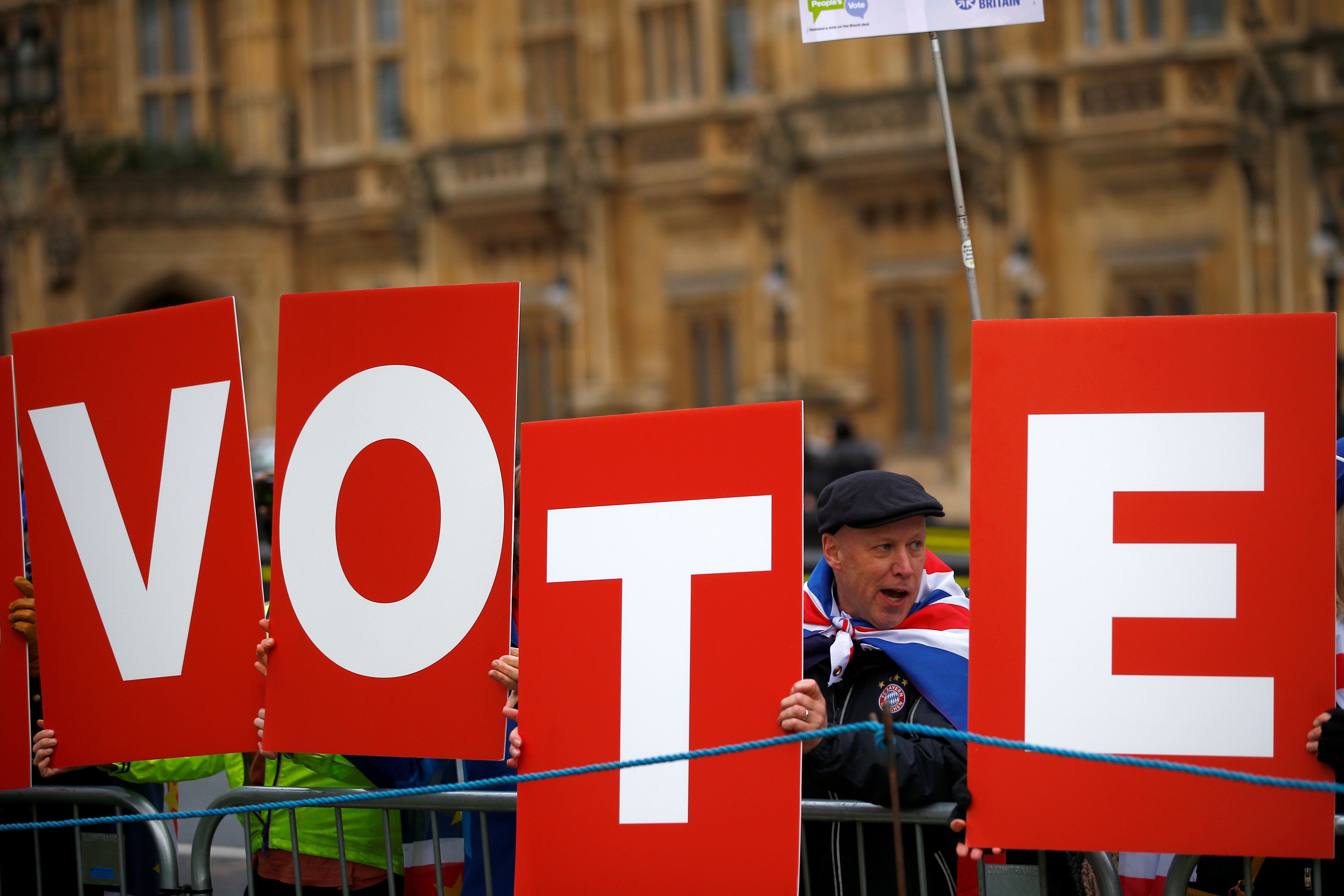December 14, 2018
Prime Minister Theresa May's victory this week in a confidence vote of Conservative Party MPs has deepened the Brexit stalemate. This makes a second Brexit referendum, once virtually unthinkable, an increasingly plausible possibility.
Here's why:
Nothing that happened this week alters the central problem facing the prime minister: There is no single Brexit plan that the EU will offer and the UK's House of Commons will accept. In fact, we learned on Tuesday that the Commons would reject May's EU-approved current plan by "a significant margin."
But now that she's survived a no-confidence vote of Conservative Party MPs, critics within her party can't call another such vote for one year. That leaves a deadlocked domestic political situation in the UK in which no clear alternative to May or her Brexit plan can emerge.
To secure her reprieve, May promised she would not lead the party into the next election in 2022. As a result, as rivals throw elbows to position themselves as her successor, she'll lose still more of her personal political leverage—just as the job of jamming through her plan becomes most difficult.
May is now playing for time. With the March 29 Brexit deadline looming, she's hoping her plan will look more appealing in January if MPs believe the only alternative is a crash-landing without a deal on the future of the UK-EU relationship. But there appear to be enough Brexit hardliners who want a crash exit and enough "remainers" hoping for a second referendum that her strategy won't win enough votes.
This reality might lead May toward desperate measures. She could try to push Brexit hardliners toward her plan by threatening them with a second referendum. For now, May says that's off the table, but if she changes her mind and makes this threat explicit, the party rebels can't call another confidence vote.
With no support in parliament and no room for bargaining with Brussels, the only way out is for May to earn a clearer public mandate from UK citizens themselves. That means asking Britain's voters not only whether they want to exit or remain within Europe, but what sort of Brexit they would accept. That means a second referendum.
Here, as in all things Brexit, the devil is in the details. How many questions should be asked? How should these questions be phrased? Conservative and Labour Party leaders will have to agree. And what if the second-vote results are inconclusive?
For now, we leave you with this perfect visual metaphor to capture the current state of Brexit.
More For You
People in support of former South Korean President Yoon Suk Yeol rally near Seoul Central District Court in Seoul on Feb. 19, 2026. The court sentenced him to life imprisonment the same day for leading an insurrection with his short-lived declaration of martial law in December 2024.
Kyodo
65: The age of former South Korean President Yoon Suk Yeol, who was sentenced to life in prison on Thursday after being found guilty of plotting an insurrection when he declared martial law in 2024.
Most Popular
In an era when geopolitics can feel overwhelming and remote, sometimes the best messengers are made of felt and foam.
Hungarian Prime Minister Viktor Orban holds an international press conference in Budapest, Hungary, January 5, 2026.
REUTERS/Bernadett Szabo/File Photo
The Hungarian election is off to the races, and nationalist Prime Minister Viktor Orbán is facing his most serious challenger in 16 years.
How people in G7 and BRICS countries think their policies will effect future generations.
Eileen Zhang
Does skepticism rule the day in politics? Public opinion data collected as part of the Munich Security Conference’s annual report found that large shares of respondents in G7 and several BRICS countries believed their governments’ policies would leave future generations worse off.
© 2025 GZERO Media. All Rights Reserved | A Eurasia Group media company.
